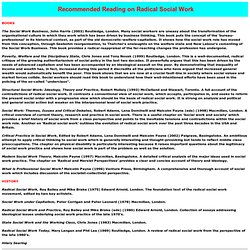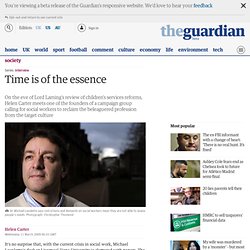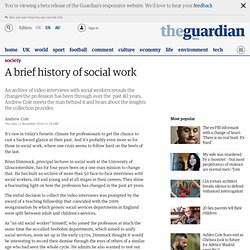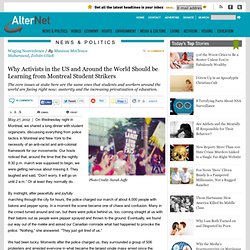

Zippos Circus Comes To The Durham. Zippos Circus is coming to Durham we are horrified that the Dalton Park Shopping center is letting Zippos Animal Circus to use there land Please Email Dalton Park Shopping center ask them NOT to Allow Zippos Animal Circus to use there land atyourservice@dalton-park.co.uk Sample Letter I am writing to you after learning that Dalton Park Shopping Centre is hosting Zippos Circus.

Zippos forces animals to perform degrading and cruel tricks, and like many members of the UK public, I am against such acts of cruelty. In fact, I am very surprised that you would want to publicly support such cruelty and align yourself with such acts, given that last year, Parliament voted unanimously to ban wild animals from circuses with the backing of 95% of the public. Zippos Circus is actually listed by the UK charity, Captive Animals Protective Society, as one to boycott over concerns with animal welfare.
We.riseup.net. Home. Dissident Island Radio. SchNEWS - Direct Action Newsheet. Home Page of The 1 in 12 Club - Bradford's Social Centre. The Pixel Project. Critical social work. International Federation of Social Workers (IFSW) Magazine for Social Work Students and Recent Graduates. Information for practice. International Council on Social Welfare. Www.tandfonline.com/doi/pdf/10.1080/10428231003781774. Bryan Stevenson: We need to talk about an injustice. NYC Protest for World Revolution. East Side Institute: Human Development, Community, Social Change.
Radical Social Work Group. Recommended Reading on Radical Social Work. The Social Work Business, John Harris (2003) Routledge, London.

Many social workers are uneasy about the transformation of the organisational culture in which they work which has been driven by business thinking. This book puts the concept of the 'bureau-professional' in its historical context, as part of the old democratic-welfare-capitalism. It shows how the social work role has moved from this conception, through Seebohm reorganisation, to Thatcher's onslaughts on the welfare state and New Labour's cementing of the Social Work Business.
This book provides a radical reappraisal of the far-reaching changes the profession has undergone. Poverty, Welfare and the Disciplinary State, Chris Jones and Tony Novak (1999) Routledge, London. Structural Social Work: Ideology, Theory and Practice, Robert Mullaly (1993) McClelland and Stewart, Toronto. Social Work: Themes, Issues and Critical Debates, Robert Adams, Lena Dominelli and Malcolm Payne (eds) (1998) Macmillan, London.
Hilary Searing. Answer: What is Radical Social Work? Radical social work aims to: *support social work that is informed by a class analysis.

*support social work that strives to reduce poverty and inequality of income and wealth. *assert that social work aims to improve people's lives not only by helping individuals and families but also by striving for structural change. Www.policypress.co.uk/PDFs/General/CRSW Call for Papers May 12 v3.pdf. Barefoot Social Worker - a libertarian social work perspective. Interview: Michael Lavalette, co-founder of the radical Social Work Action Network. It's no surprise that, with the current crisis in social work, Michael Lavalette's desk at Liverpool Hope University is cluttered with papers.

The associate professor in social work and social justice at the university is also a founder of the Social Work Action Network (Swan), a radical social work action group that brings together academics, service users, social workers and students. It was formed four years ago, he says, to draw a line in the sand and to express concern that social work was turning into a business, subject to internal markets and business principles that were clashing with the values of the profession.
"Across the country, social workers are deeply concerned," Lavalette says. Social Work Action Network. The Rank-and-Filer. RISE. Www.historyofsocialwork.org/PDFs/1984, Barker, Founders of the welfare state OCR (c notice).pdf. Policy Press - Social Work in Practice series. Www.historyofsocialwork.org/PDFs/1980 Radical social work OCR C.pdf. 1975_radical_social_work/2009, Fergusson, radical social work.pdf.
History of Social Work, details. History of the Russell Sage Foundation. One of the oldest American foundations, the Russell Sage Foundation was established in 1907 for "the improvement of social and living conditions in the United States" by a gift of $10 million from Margaret Olivia Slocum Sage (1828–1918), widow of railroad magnate and financier Russell Sage.

Mrs. Sage directed the foundation to pursue its mission through a broad set of activities, including "research, publication, education, the establishment and maintenance of charitable or benevolent activities, agencies and institutions, and the aid of any such activities, agencies, or institutions already in existence. " Letter of Gift To the Trustees of Russell Sage Foundation:I have transferred to Russell Sage Foundation...a fund, the principal of which...shall be held, and the income thereof applied to the improvement of social and living conditions in the United States of America....The scope of the Foundation is not only national but is broad.
Timeline. 1864_ENG_Octavia_Hill/1982, Boyd, Octavia Hill OCR C.pdf. Www.sagepub.com/upm-data/9812_039472ch02.pdf. A brief history of social work. It's rare in today's frenetic climate for professionals to get the chance to cast a backward glance at their past.

And it's probably even more so for those in social work, where one crisis seems to follow hard on the heels of the last. Brian Dimmock, principal lecturer in social work at the University of Gloucestershire, has for four years been on a one-man mission to change that. He has built an archive of more than 50 face-to-face interviews with social workers, old and young and at all stages in their careers. They shine a fascinating light on how the profession has changed in the past 40 years.
Www.birmingham.ac.uk/Documents/college-social-sciences/social-policy/IASS/100-years-of-social-work.pdf. Radical Routes. A philosophy for the protesters. Barcelona, Spain - A few weeks ago, after participating at a conference at Stony Brook University in New York, I went to Zuccotti Park to see and support the protesters there.

A few months earlier, I had done the same thing, but in Placa de Catalunya in Barcelona; in both parks, where similar dissatisfaction with our world order was being expressed, the only thing I could think of was the actuality of Karl Marx's words of 1845: "Philosophers have only interpreted the world in various ways; the point is to change it". How can these words still be valid today? Is there a philosophy for these protesters? Regardless of all the great work that philosophers have done since Marx, this change has still not come about. The reason does not rest in philosophers' inability to interpret correctly, but rather in their desire to interpret correctly. Santiago Zabala is ICREA Research Professor of Philosophy at the University of Barcelona. What does being socially conscious mean? In a world of social networks and a influx of information which seemingly create a global consciousness, does that mean we’re being more socially conscious?

According to Wikipedia, “Social consciousness is consciousness shared within a society. It can also be defined as social awareness; to be aware of the problems that different societies and communities face on a day-to-day basis; to be conscious of the difficulties and hardships of society.” To us that is a little negative although we are trying to solve people’s hardships and make people more aware.
Well simply put, the recognition and realization that we are ALL connected. We are connected in ways that we may not even realize, but if you accept that fact, you will start to look at everything you encounter and every person you interact with as a part of you, you are being socially conscious. Think about this for a moment… What do they do to the worst people in prison? One late random night a show came on with a seminar by Dr.
Why Activists in the US and Around the World Should be Learning from Montreal Student Strikers. Photo Credit: Sarah Jaffe May 27, 2012 | Like this article?

Join our email list: Stay up to date with the latest headlines via email. On Wednesday night in Montreal, we shared a long dinner with student organizers, discussing everything from police tactics in Montreal and New York to the necessity of an anti-racist and anti-colonial framework for our movements. By midnight, after peacefully and joyfully marching through the city for hours, the police charged our march of about 4,000 people with batons and pepper spray.
We had been lucky. What's this Place? The World in Action. ColdType - Writing Worth Reading From Around The World. Of the 1%, by the 1%, for the 1% It’s no use pretending that what has obviously happened has not in fact happened.

The upper 1 percent of Americans are now taking in nearly a quarter of the nation’s income every year. In terms of wealth rather than income, the top 1 percent control 40 percent. Their lot in life has improved considerably. Twenty-five years ago, the corresponding figures were 12 percent and 33 percent. One response might be to celebrate the ingenuity and drive that brought good fortune to these people, and to contend that a rising tide lifts all boats. Economists long ago tried to justify the vast inequalities that seemed so troubling in the mid-19th century—inequalities that are but a pale shadow of what we are seeing in America today. Some people look at income inequality and shrug their shoulders. First, growing inequality is the flip side of something else: shrinking opportunity. None of this should come as a surprise—it is simply what happens when a society’s wealth distribution becomes lopsided. Layout 1.